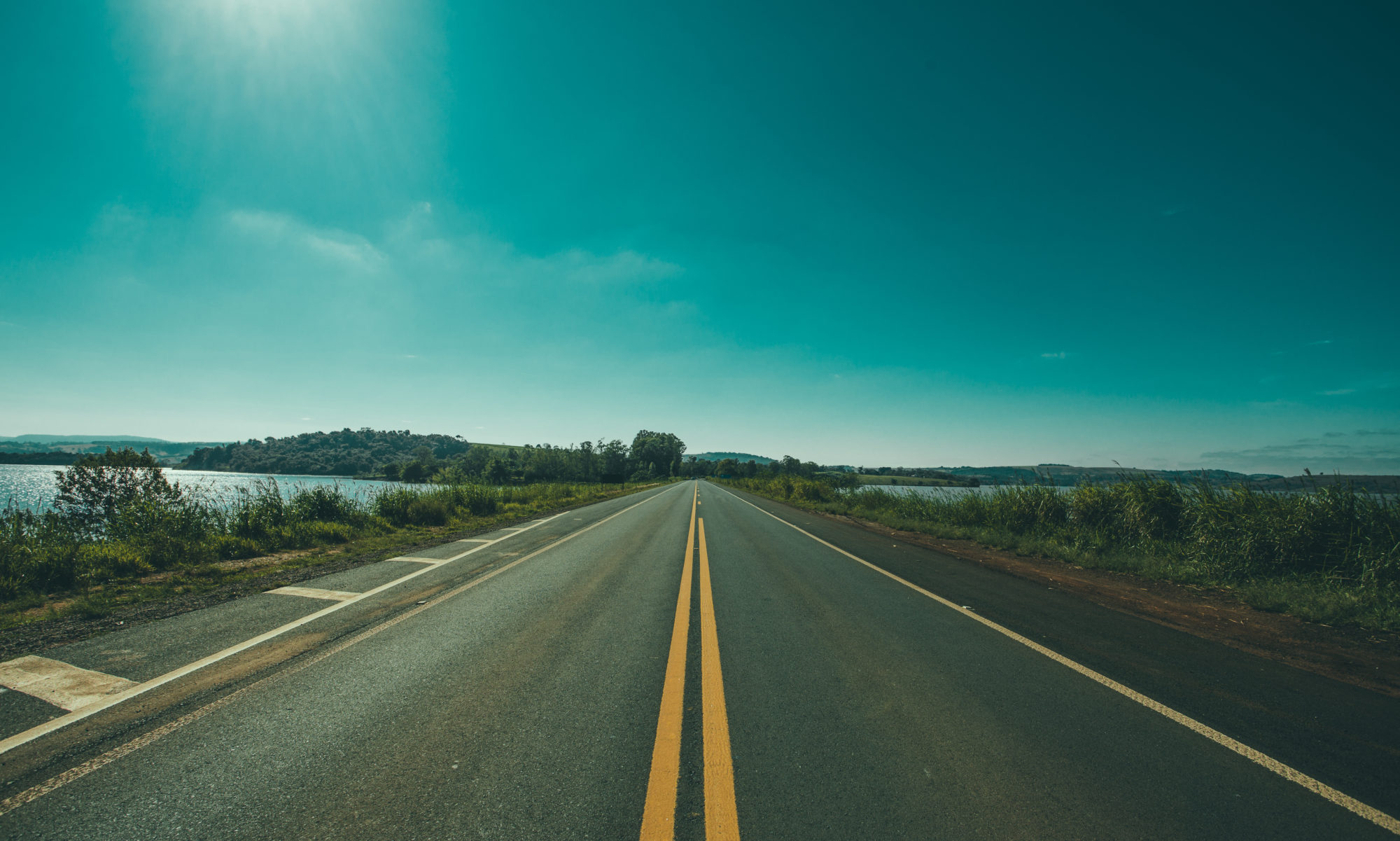That is, so long! We are departing for Zanzibar soon.
Now where were we? After overnighting in Nairobi, our next destination is Amboseli National Park.
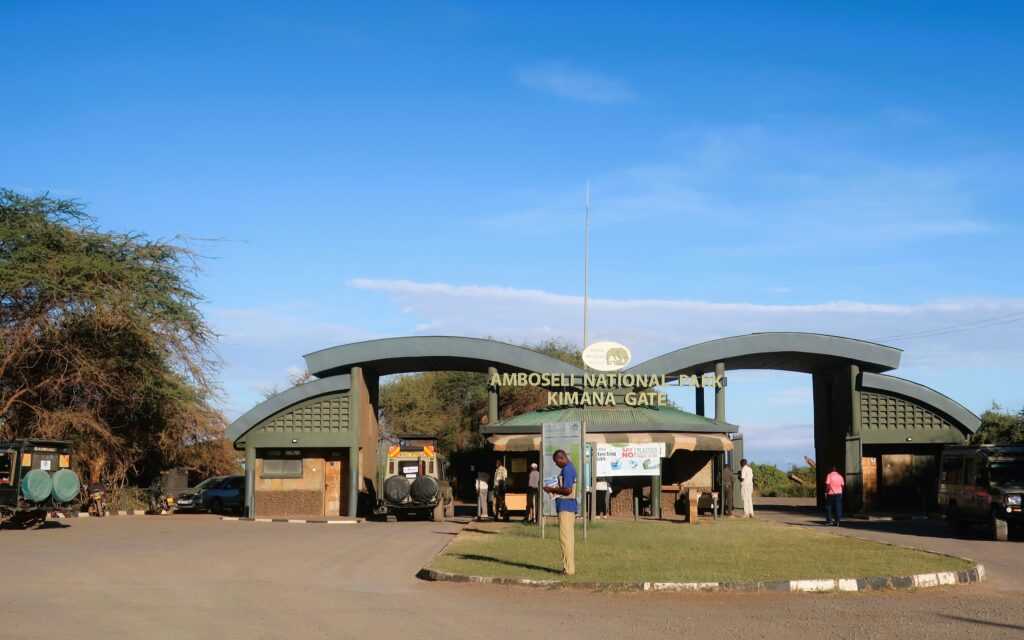
The dominant feature in Amboseli is Mount Kilimanjaro, which looms over the border in Tanzania.
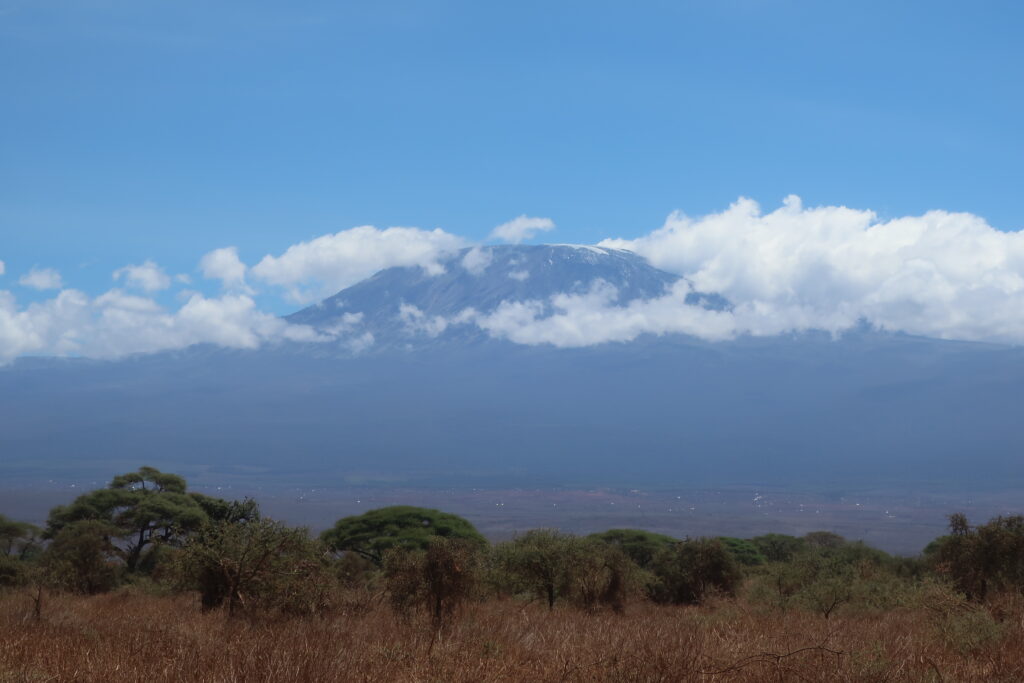
It becomes a personal challenge to see how many photos we can get with Kilimanjaro in the background.
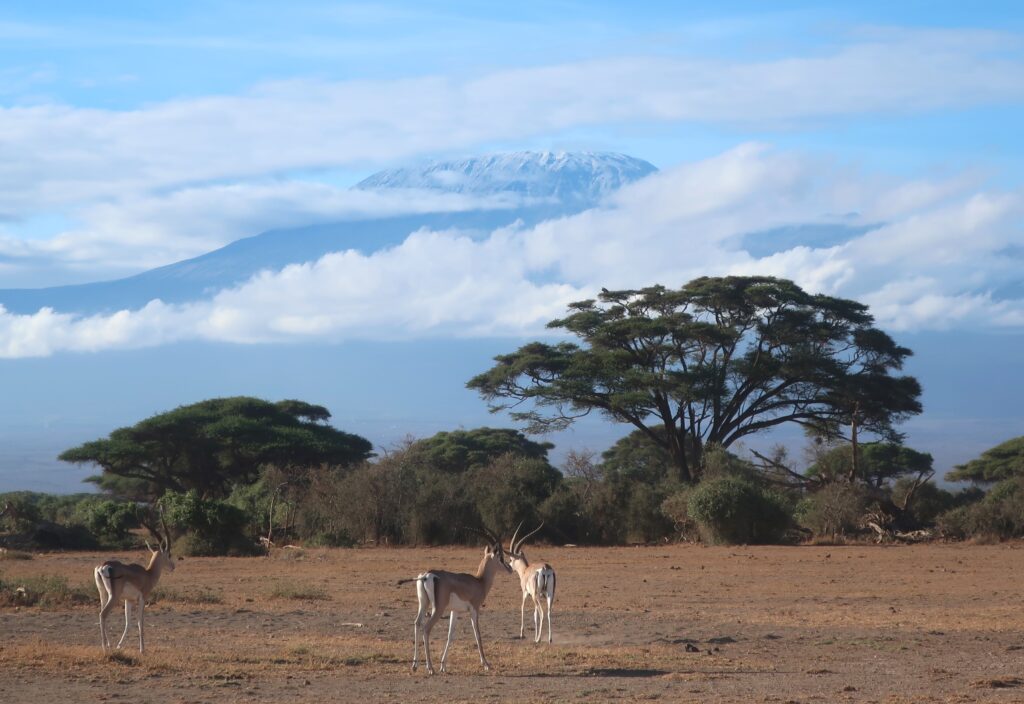
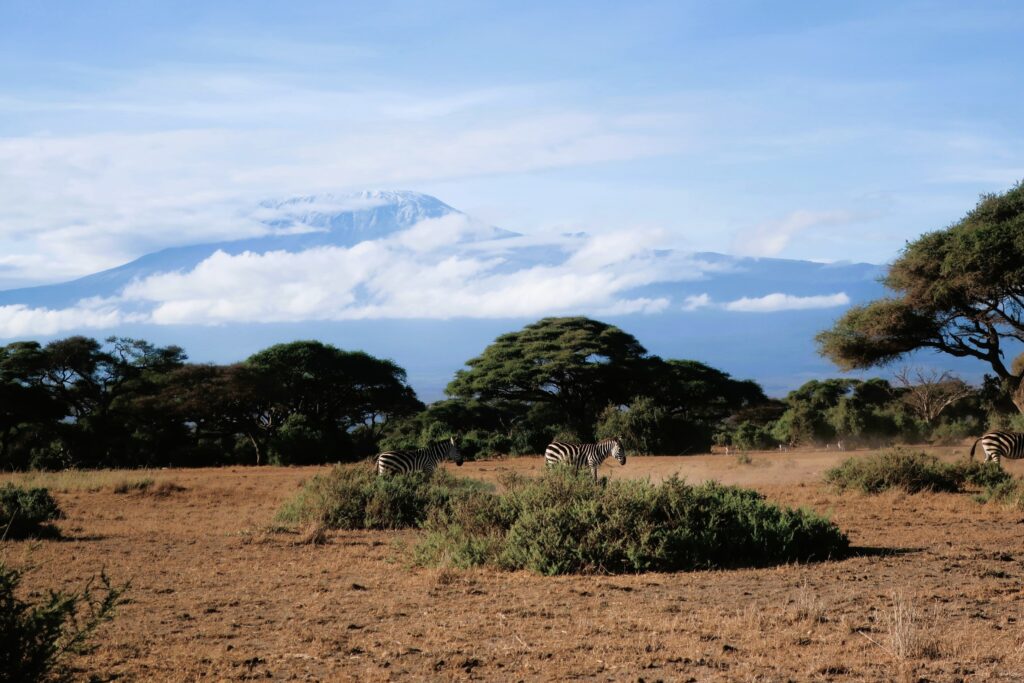
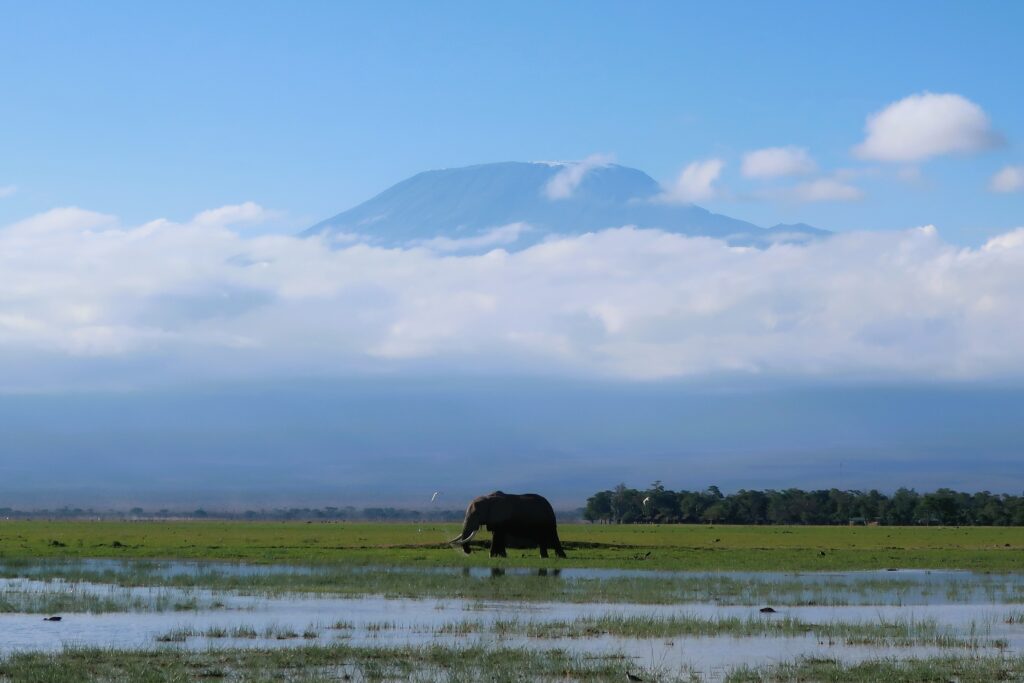
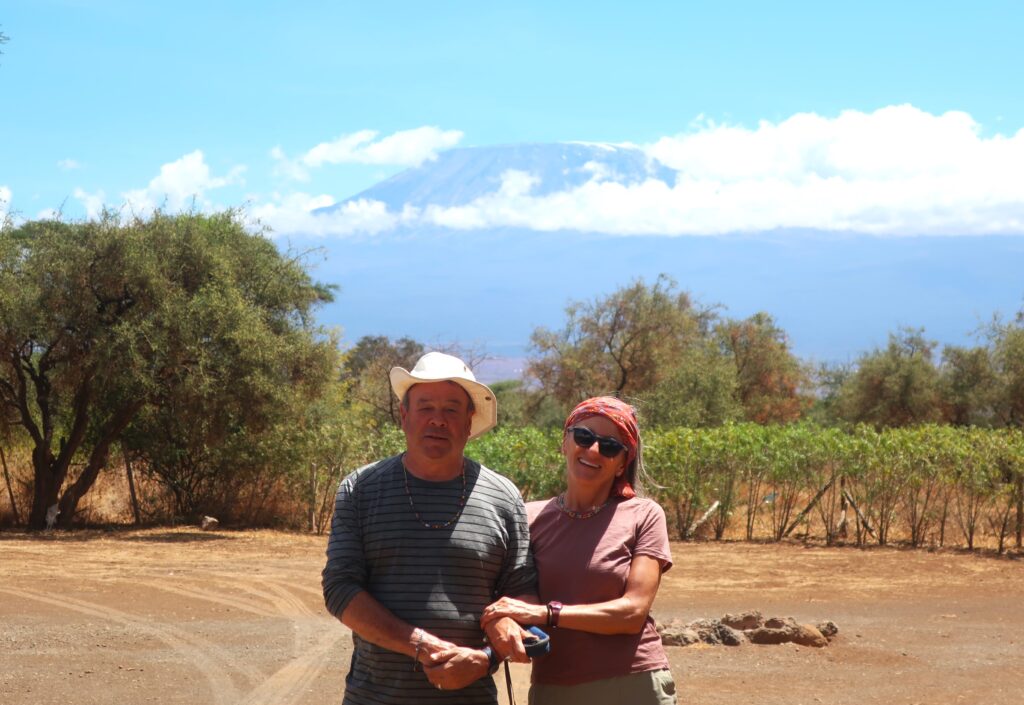
There are many elephants in this park.
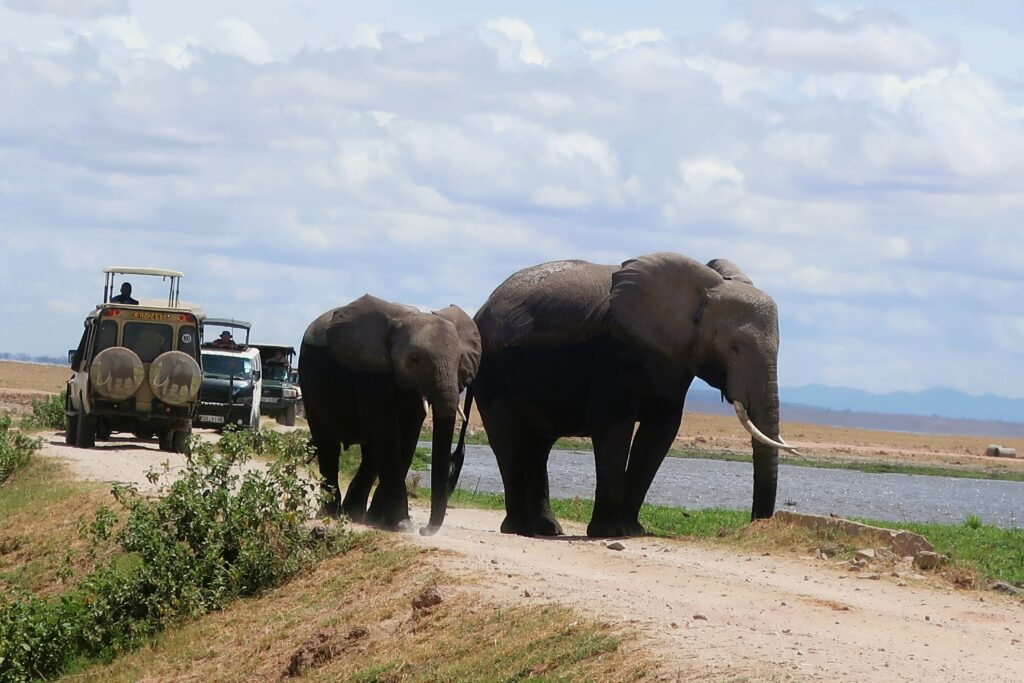
There’s lots of water for them to cool off in.
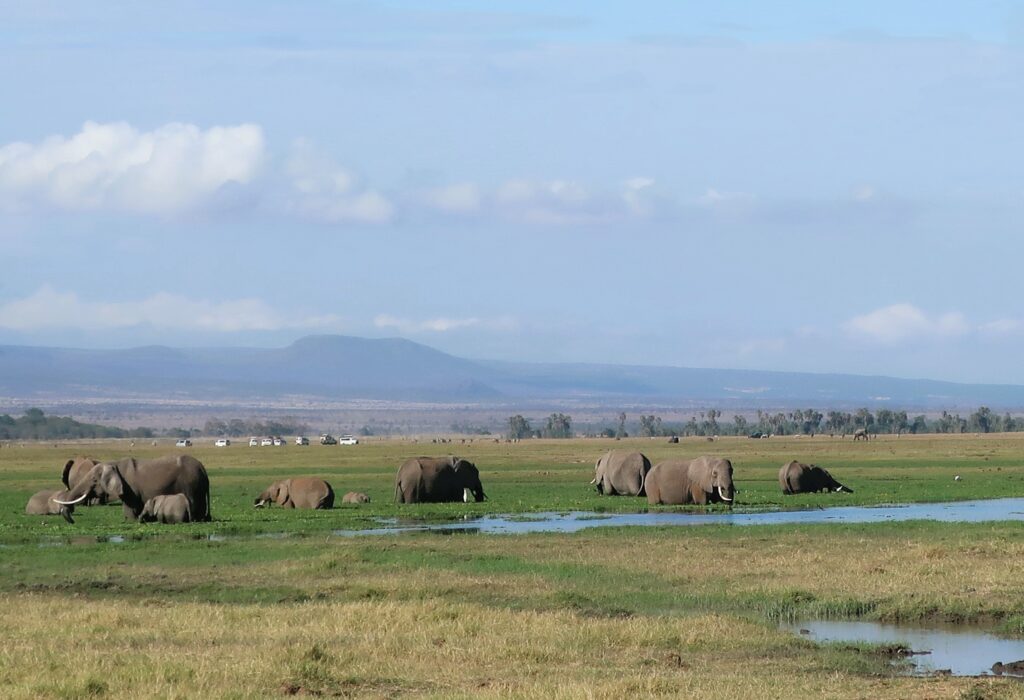
Lots of interesting birds, too. We see this saddle-billed stork successfully catch fish in the marsh at the side of the road.
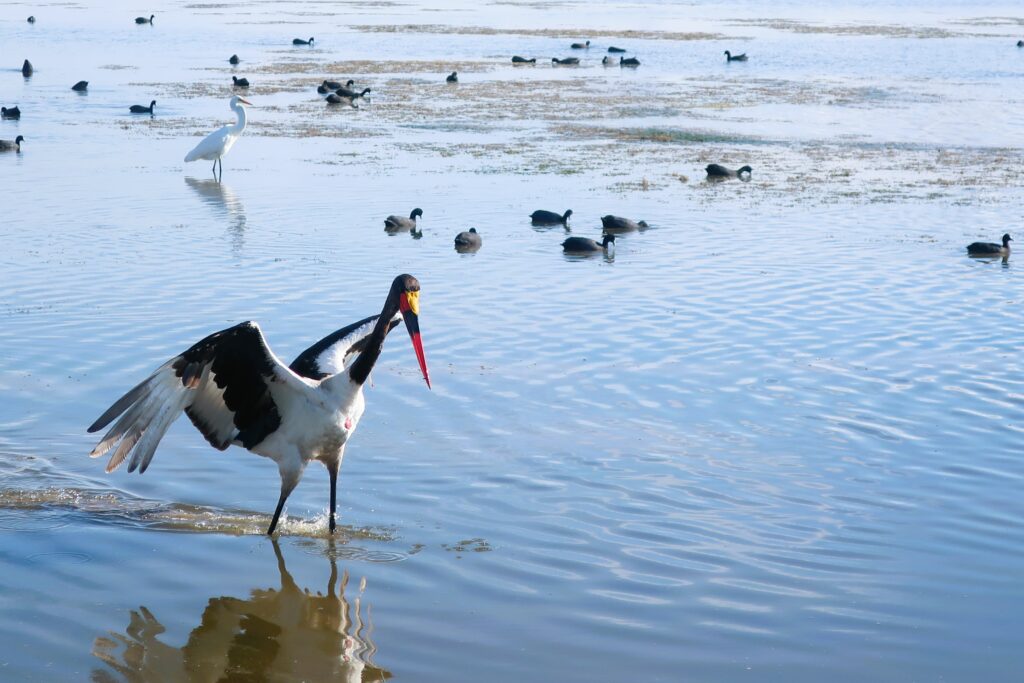
We also see a flock of distinctive gray crowned cranes.
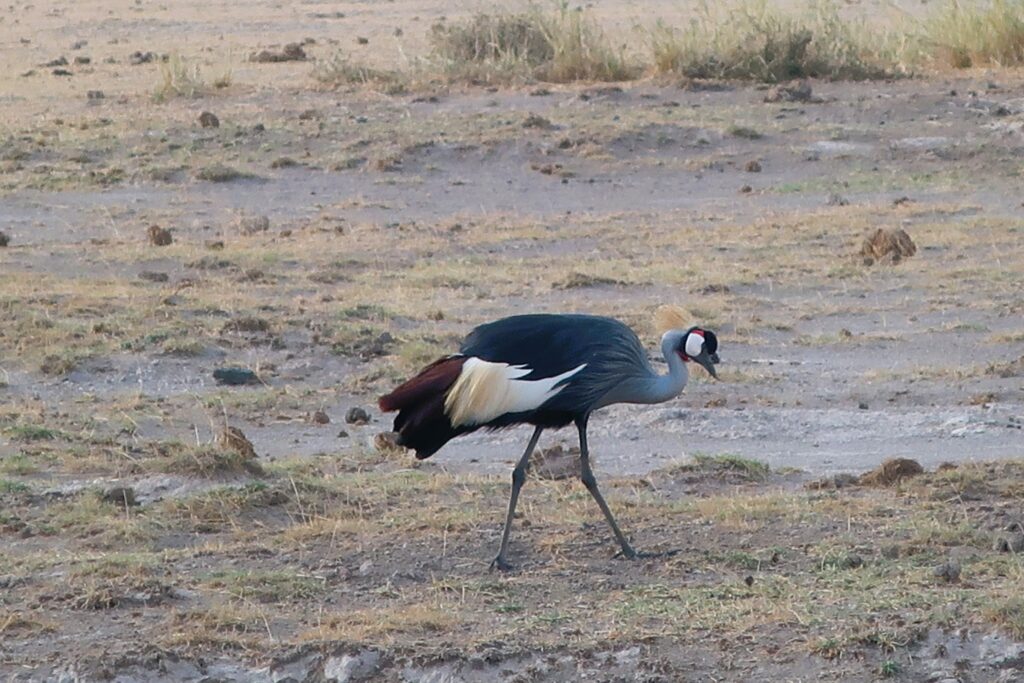
A gray crowned crane is the central feature of the Ugandan flag.
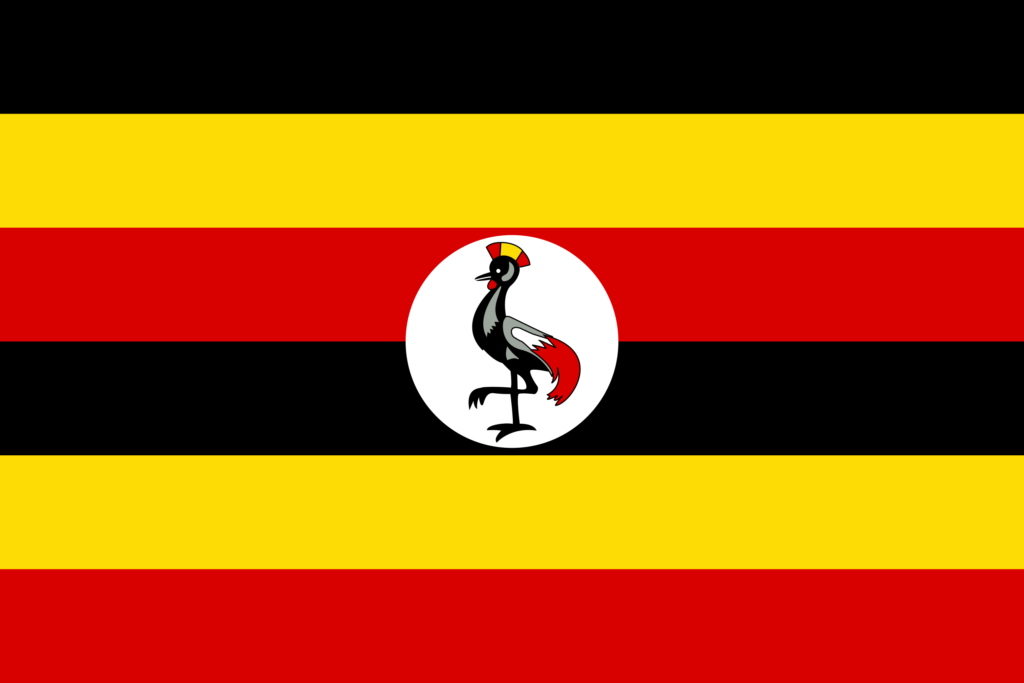
Our campsite is, um, pretty basic, with sporadic electricity and running water. We really enjoy it, though. The three nights we spend here, we sit in the light of a full moon with a glass of wine and listen to the jackals.
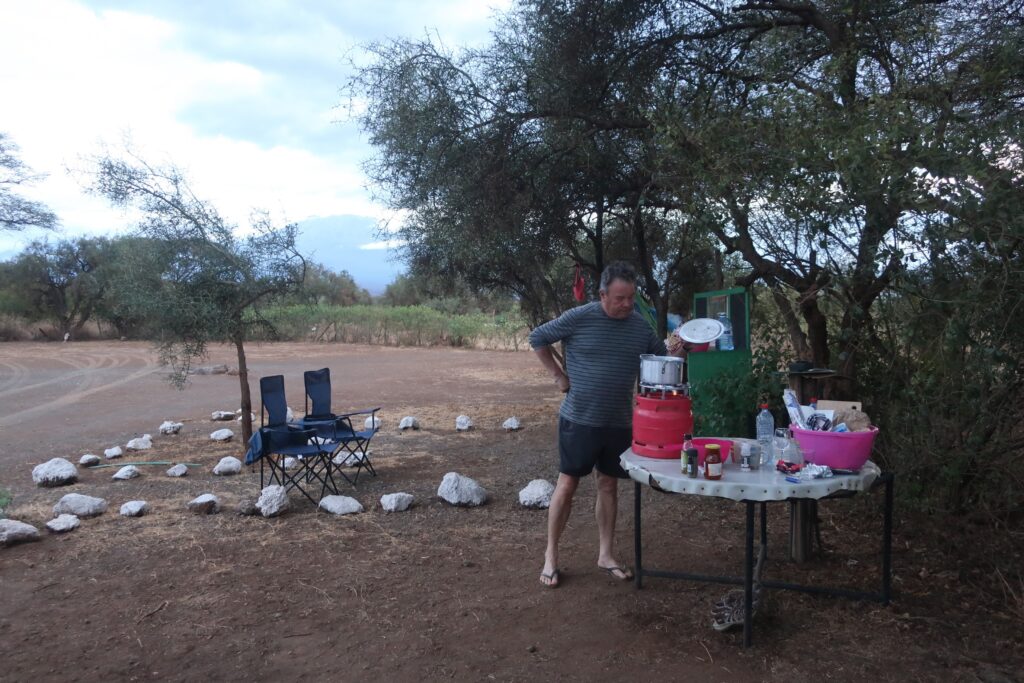
A full-blown crisis erupts on our last morning in Amboseli: our car key is stuck in the rear door lock. All our worldly goods are in the car. The key is also the ignition key.
A local ‘mechanic’ is summoned. It takes two hours of patience to fit a length of stiff wire through the window weather-stripping to unlatch the door. It takes another hour and a half to dismantle the rear lock and free the key. Our bacon is saved.
Of course, this draws a crowd .
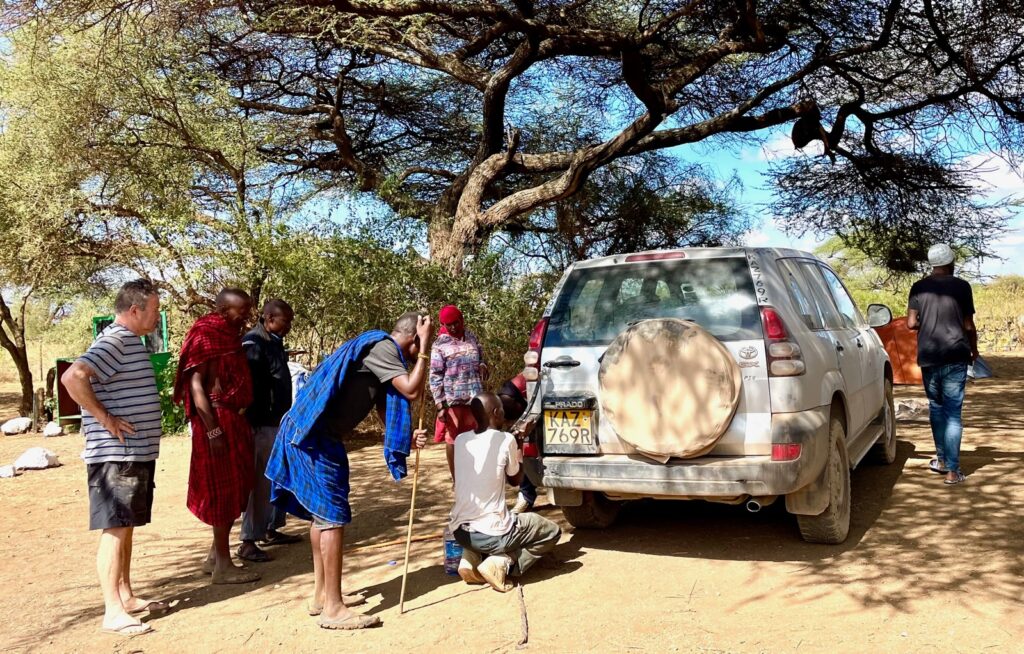
We are finally on our way to Tsavo West National Park. We take a shortcut via an unpaved road to our destination.
Parts of the landscape have well-tended, hand-worked fields. It looks more idyllic than the usual roadside scenery.
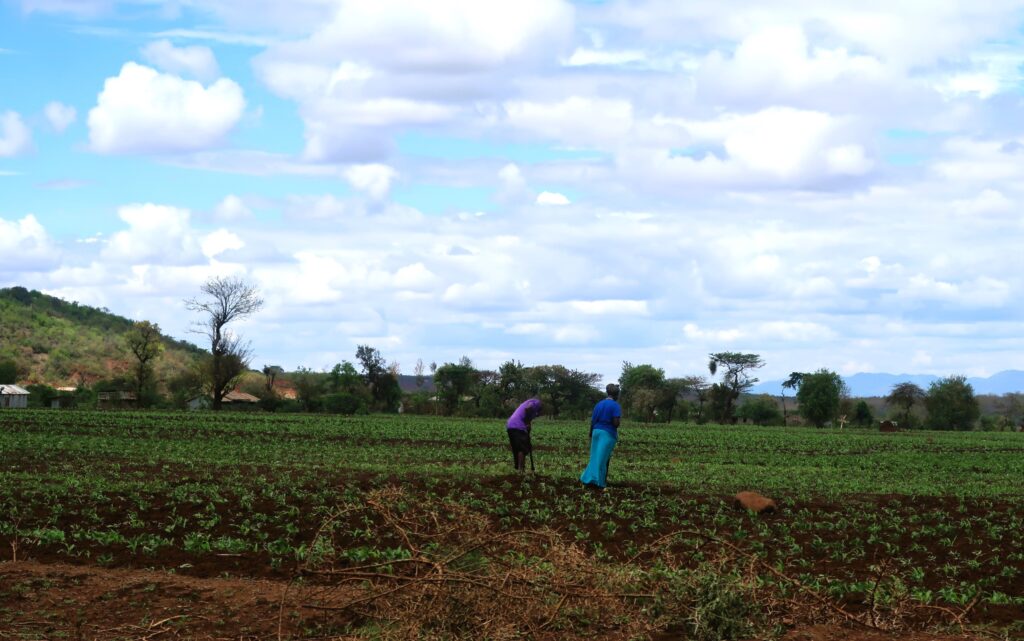
Other parts look parched and neglected. Water is a big issue everywhere in Kenya.
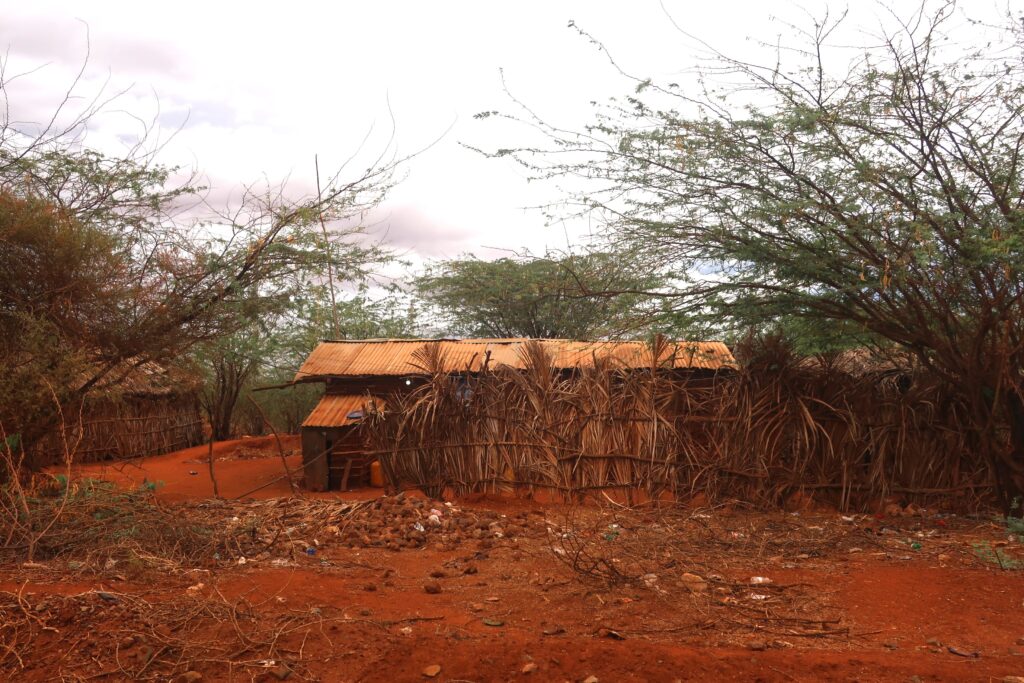
The ‘short’ rainy season is due to start any day now.
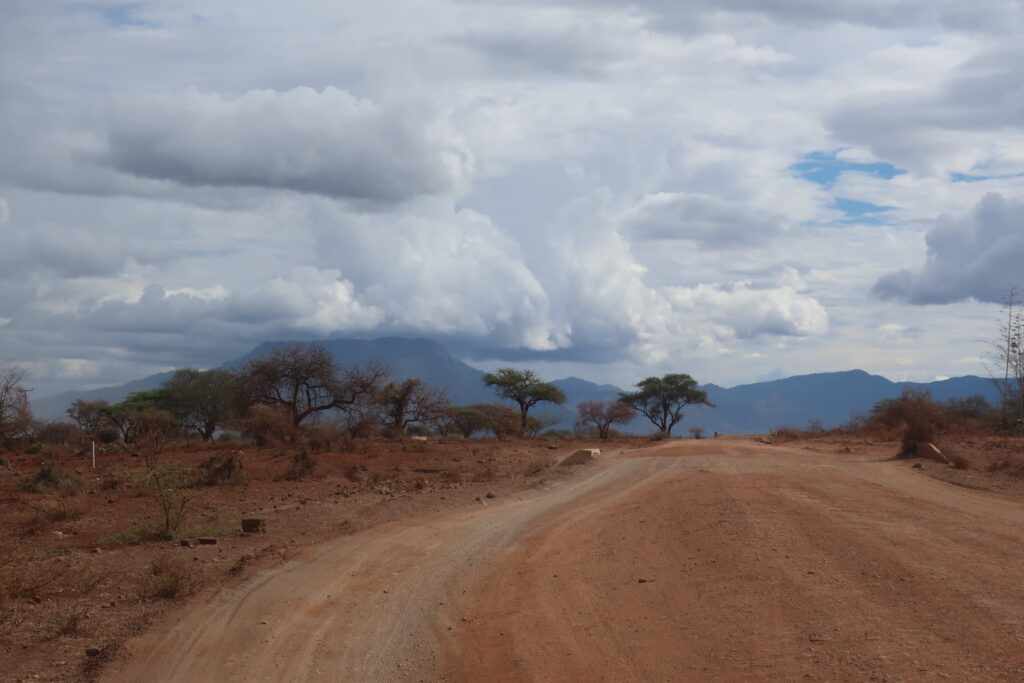
Finally, we arrive at Jipe Lake. We stay at the delightful Lake Jipe Eco Camp.
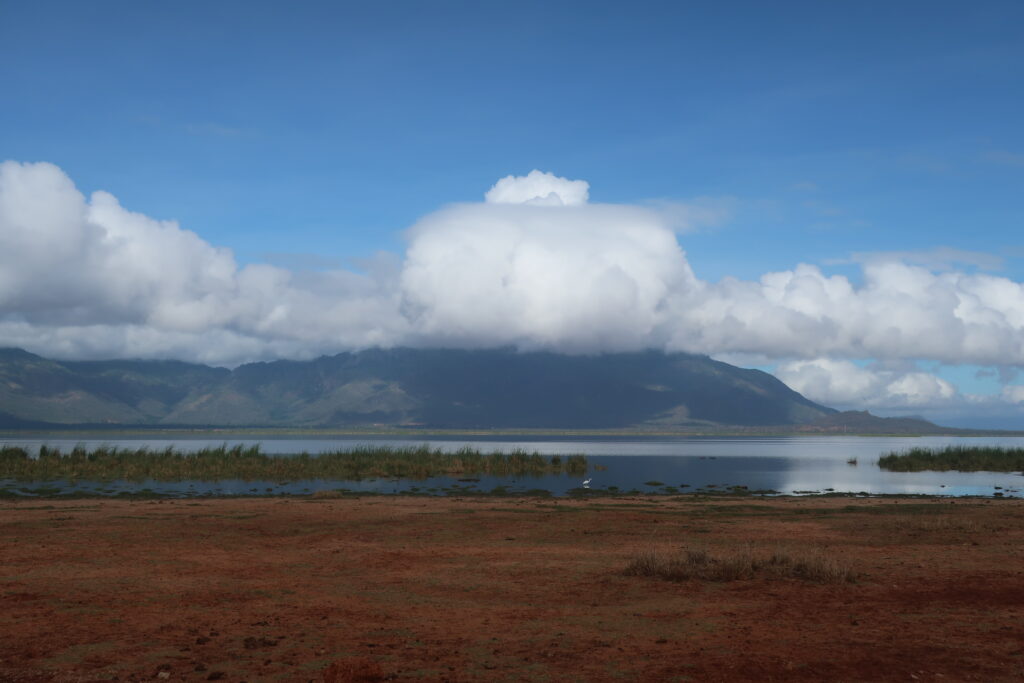
Next day, we set out through the Jipe Gate of the park.
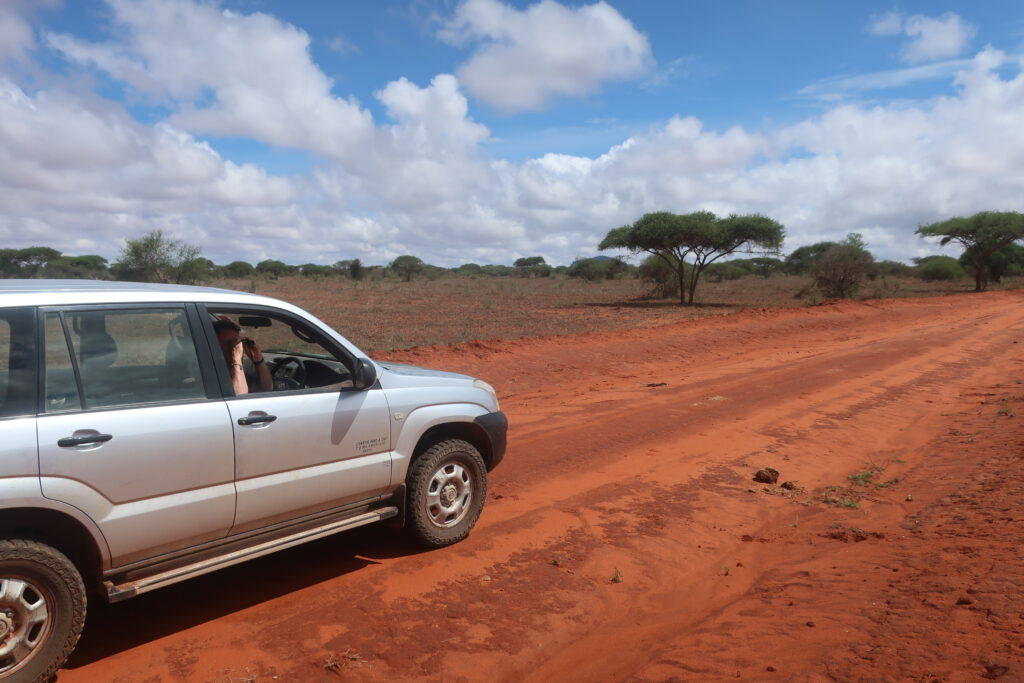
This is an enormous park (9065 square kilometres). One straight stretch follows the border fence for about twenty kilometres.
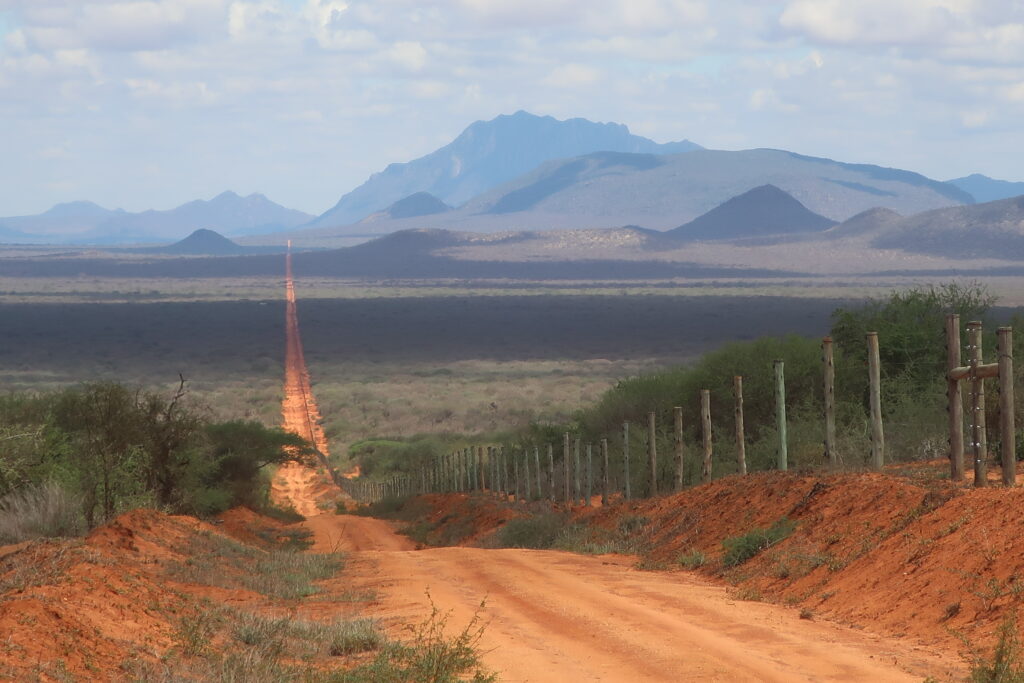
Our goal is Mzima Springs. These springs gush out from under the volcanic mountains and are one of the main sources of water for Mombasa, hundreds of kilometres away.
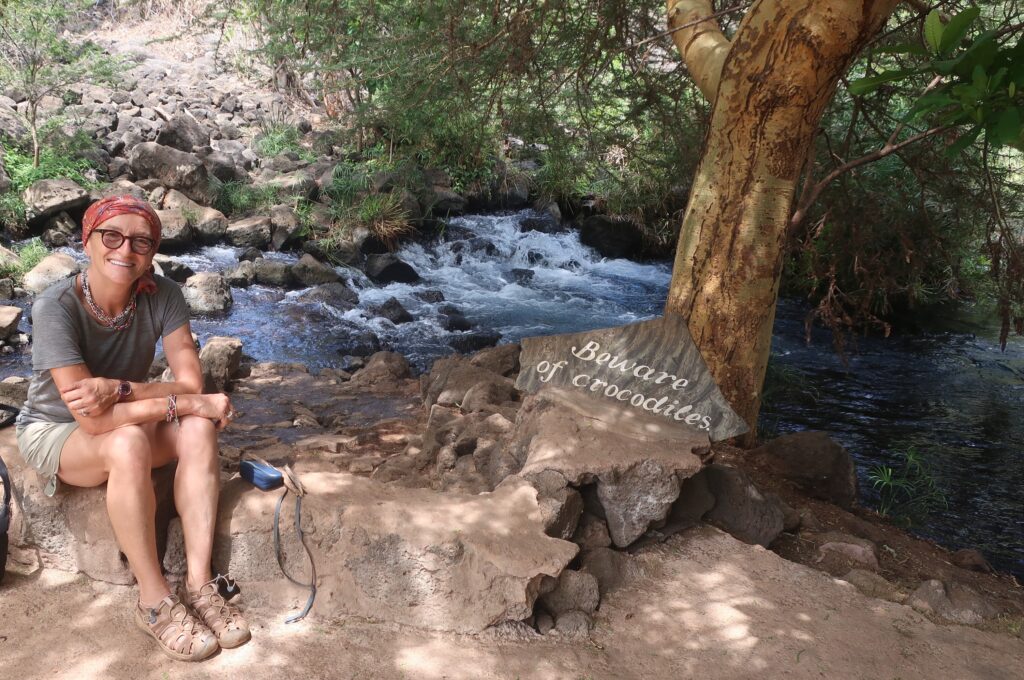
The water here is crystal clear. Besides hippos and crocodiles, there are unusual blue carp.
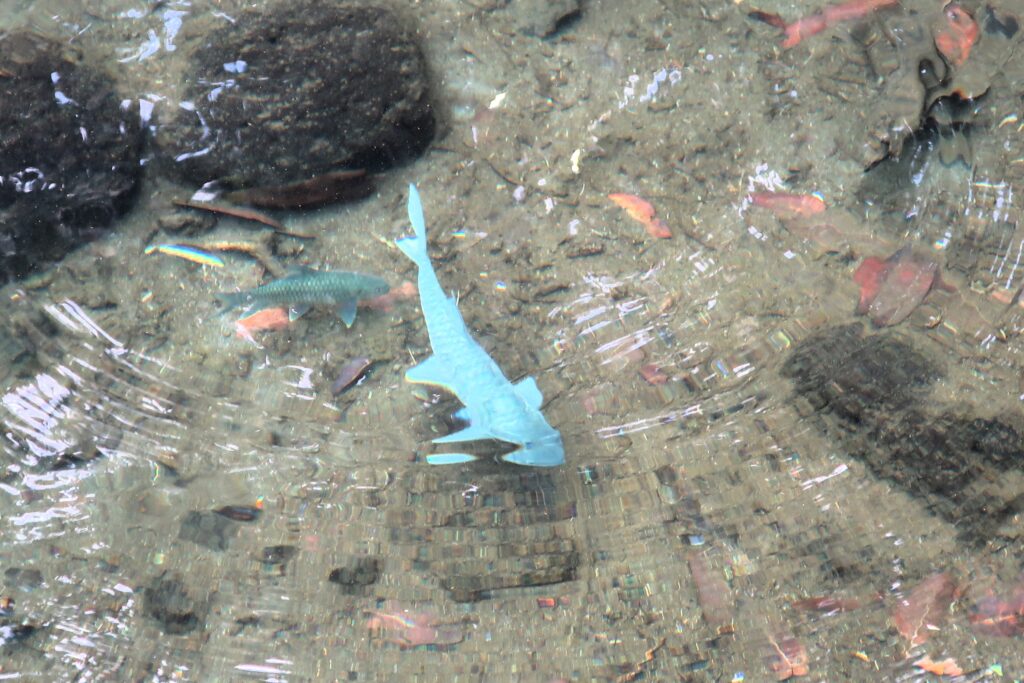
I carry a stick to beat any over-inquisitive monkeys
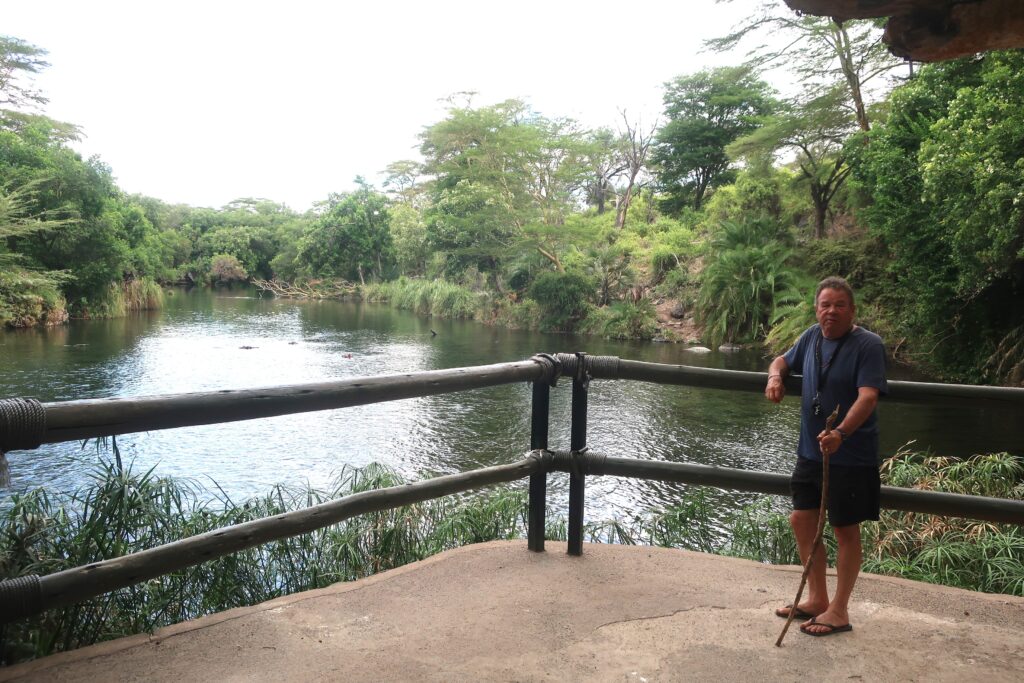
As usual, we get lost. Maria is now on a first-name basis with the park manager, after phoning several times for explicit directions.
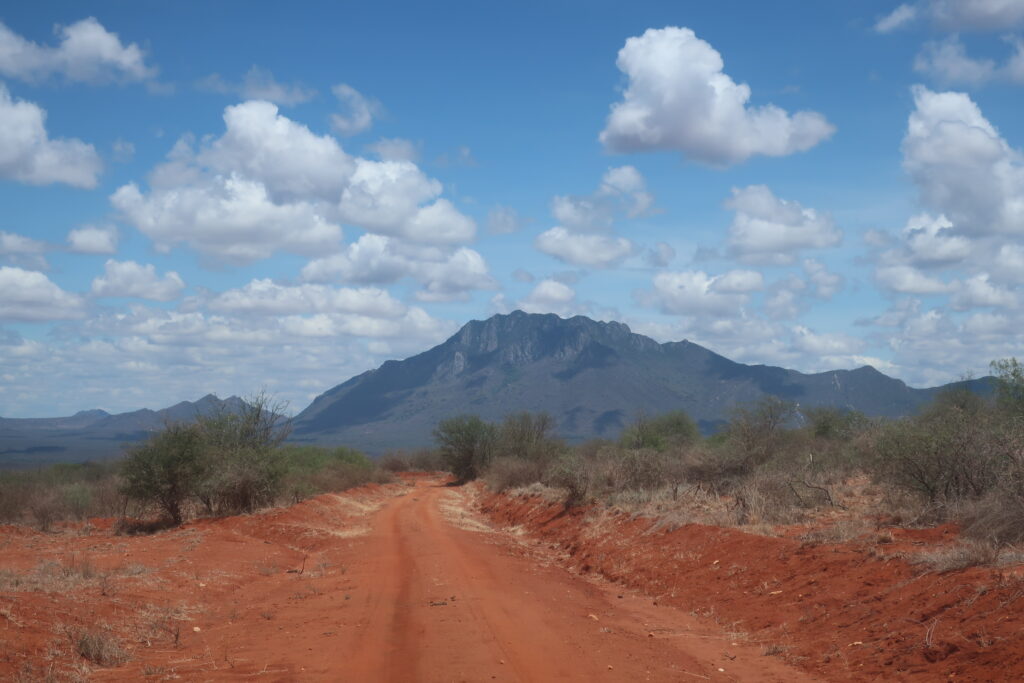
We come across a giraffe that blends in surprisingly well with the tree he’s standing next to.
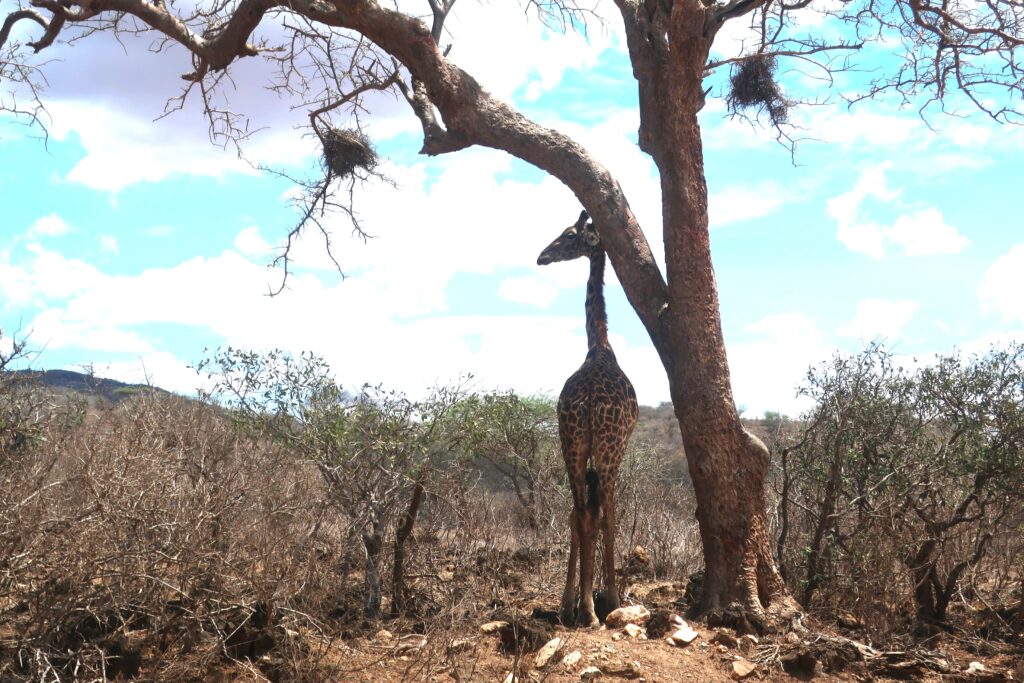
We cross the Rhodesia Bridge. This has been here since the beginning of World War One, when (British) East Africa declared war on nearby (German) East Africa (modern Tanzania).
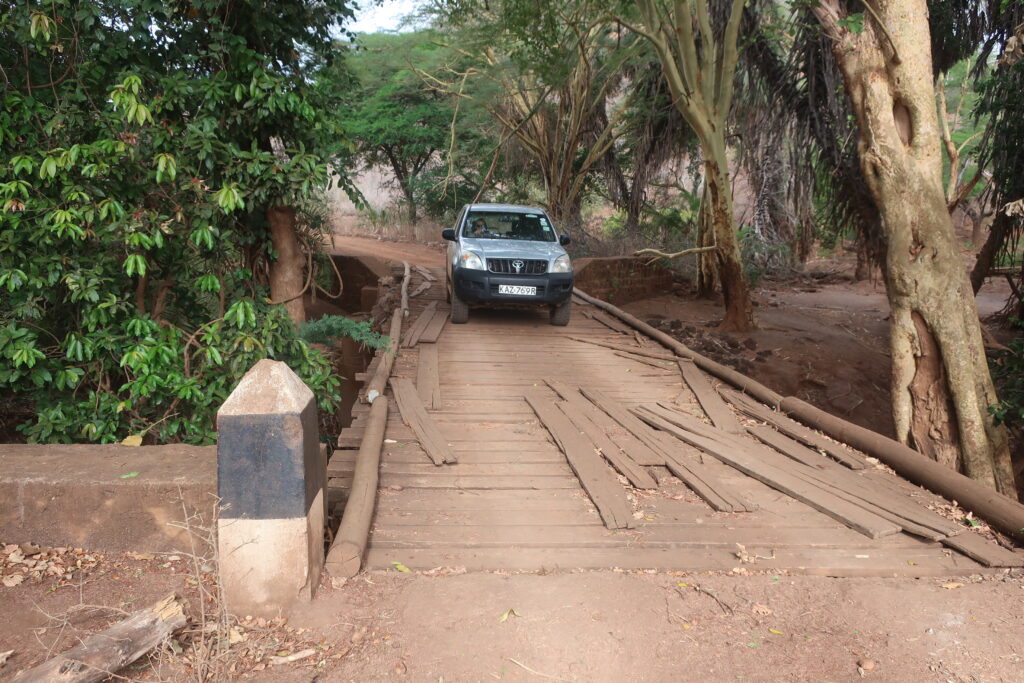
In the cool forest that lines this river, we see a mamma elephant and her little one.
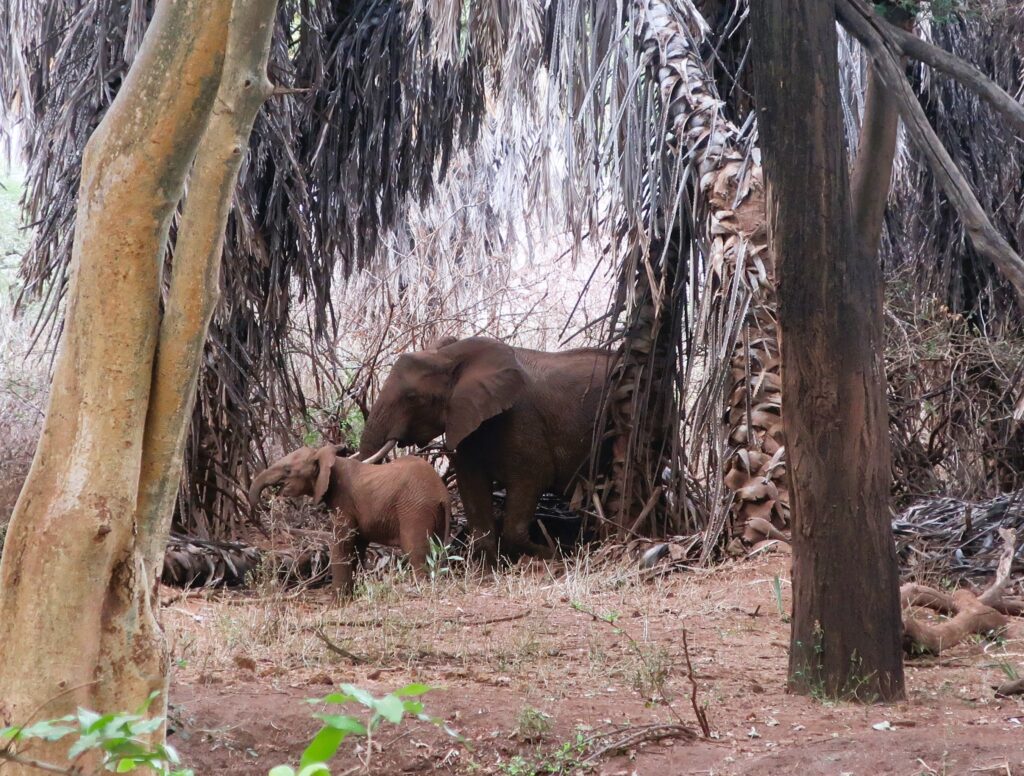
We cross over an abandoned stretch of the Uganda Railway, built by the British (with almost exclusively Indian labour) and completed in 1901.
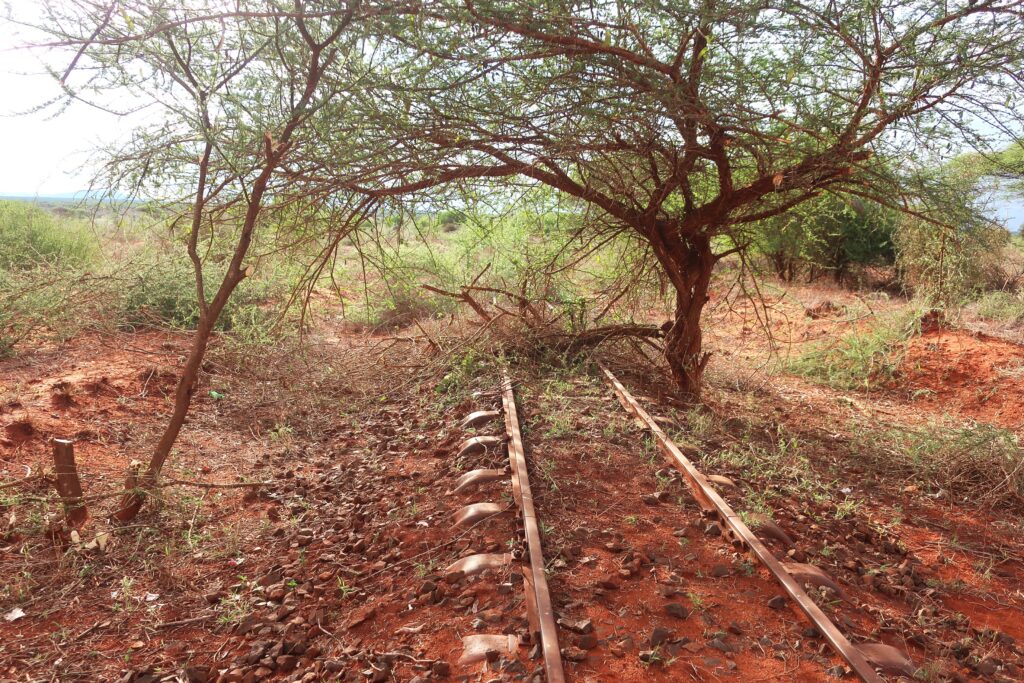
By the time we get back, the hippos are grazing by the lake.
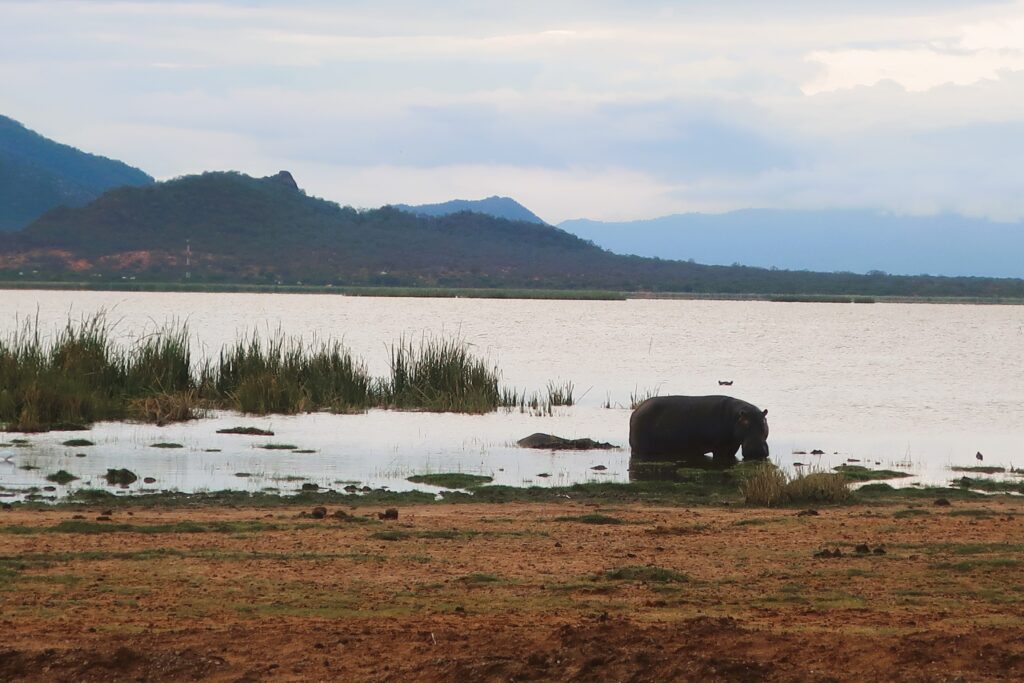
Our final day of driving takes us down the notoriously attention-demanding Mombasa-Nairobi Road. According to Wikipedia:
‘Due to the volume of traffic, and the concentration of heavy-duty transport vehicles, the route is accident-prone, accounting for a large number of injuries and fatalities in the region. In 2013 alone, 3,179 people lost their lives in traffic accidents on the combined Mombasa–Malaba Road.’
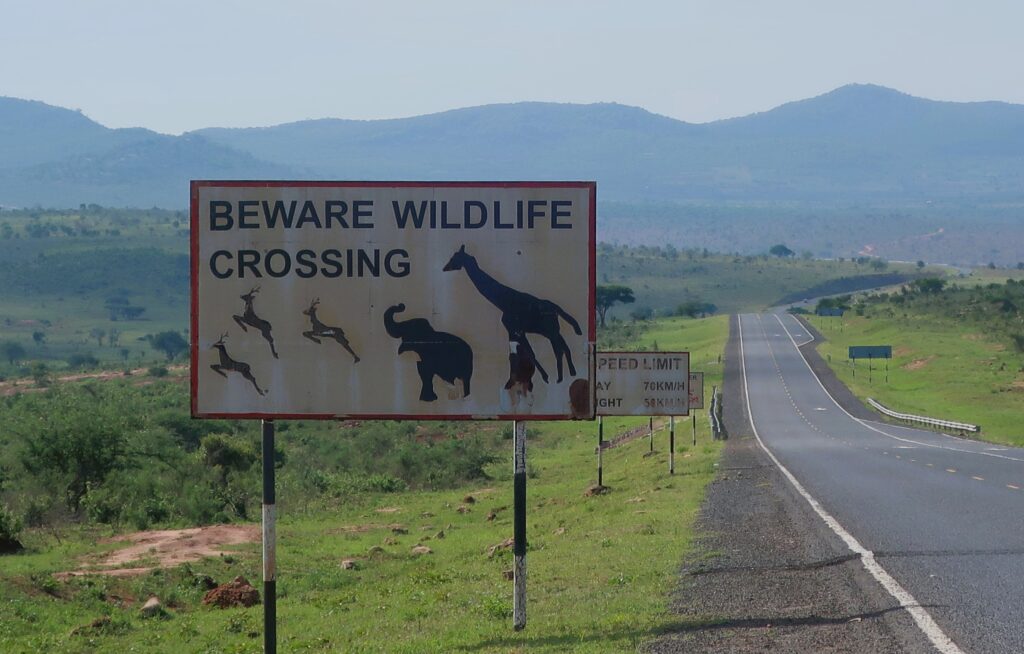
We survive to reach the Wildebeest Eco Camp one more time for our last few days in Kenya.
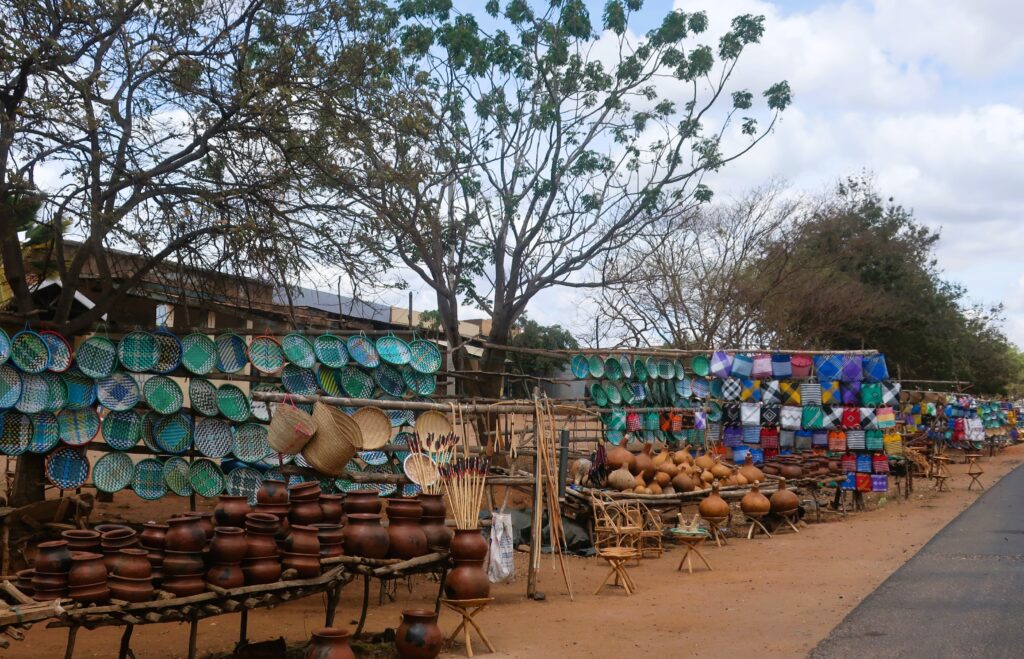
Sight or Insight of the Day
We notice these signs around Kenya wherever public servants are handling money.
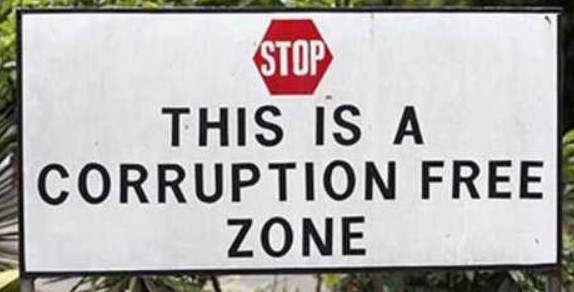
Notably around the Nairobi National Museum. Which is pretty rich, considering the management of the museum have been busted embezzling hundreds of millions of Kenyan schillings recently.
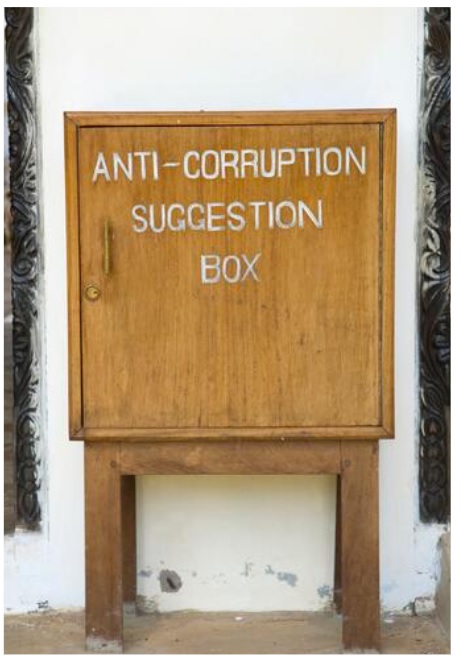
As in most of Africa, people here are very poorly served by their government.
